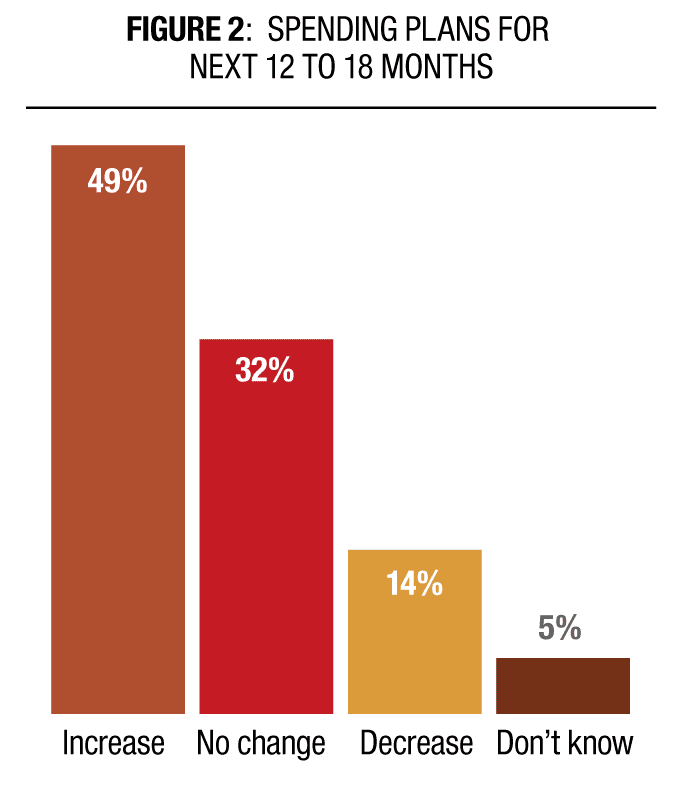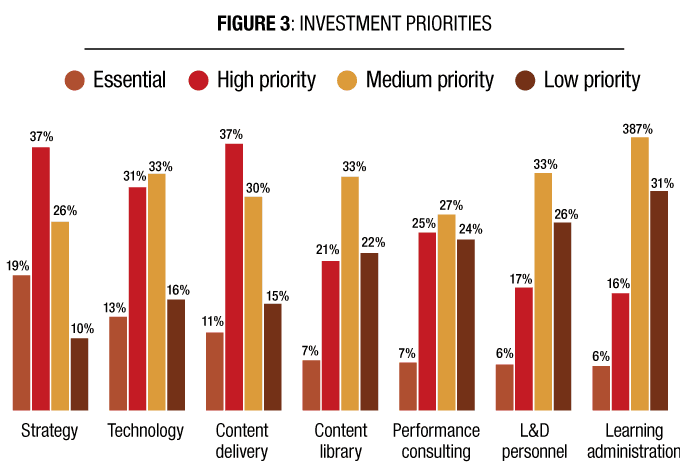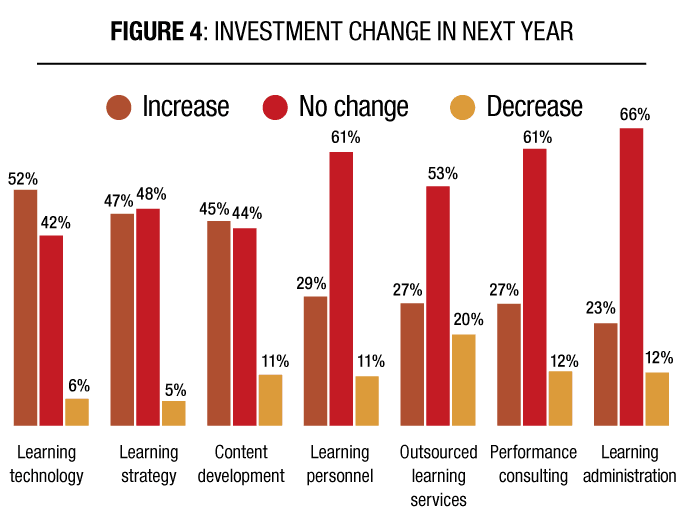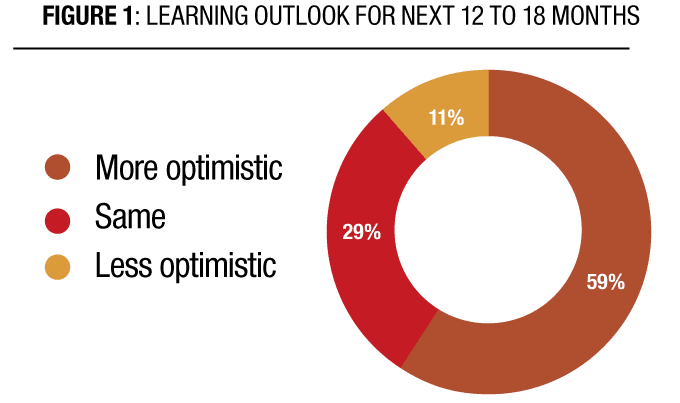CLOs are feeling good about 2018.
According to a survey of Chief Learning Officer Business Intelligence Board, a majority (59 percent) of CLOs say their outlook for 2018 is more optimistic than 2017, with 29 percent saying their outlook is the same and 11 percent less optimistic.
Spending plans back up their optimism. Nearly half (49 percent) of CLOs expect their training budget to increase over the next 12 to 18 months.
The Chief Learning Officer Business Intelligence Board is a group of 1,500 professionals in the learning and development industry who have agreed to be surveyed by the Human Capital Media Research and Advisory Group, the research and advisory arm of Chief Learning Officer magazine. This survey was conducted from June to July 2017.
 The good vibrations fit a pattern of optimism over the past three years with the positive mood dropping only slightly and pessimism about spending plans slightly rising. In 2016, 62 percent of CLOs were more optimistic than the previous year and 9 percent less optimistic. In 2015, 65 percent were more optimistic and only 4 percent were less optimistic.
The good vibrations fit a pattern of optimism over the past three years with the positive mood dropping only slightly and pessimism about spending plans slightly rising. In 2016, 62 percent of CLOs were more optimistic than the previous year and 9 percent less optimistic. In 2015, 65 percent were more optimistic and only 4 percent were less optimistic.
That optimism translates to an anticipated increase in cash in 2018 (Figure 2). Only 14 percent of survey respondents expect a decrease in spending and about one-third (32 percent) say their spending will stay about the same.
Spending Up, Staffing Flat
Where will those increased dollars go? The highest priorities are learning strategy and content delivery, with 56 percent and 48 percent respectively saying those are either essential or high priority spending categories (Figure 3).
The lowest priorities are learning administration (31 percent) and learning and development personnel (26 percent). Learning organizations appear poised to continue to hold the line on staffing and administrative costs in order to invest more in upfront services and technology aligned directly with business growth opportunities.
Those trends are consistent with survey data from previous years. In 2015, the highest priorities were learning strategy (71 percent) and learning technology (57 percent), with content library coming in third (41 percent). The lowest priority in 2015 was performance consulting (38 percent), but learning administration and learning and development personnel came next (31 percent and 29 percent).
Almost half of surveyed CLOs (47 percent) expect to make a significant increase in learning strategy spending and 20 percent are cutting funds for outsourced learning. But the biggest change is learning technology, with a majority (52 percent) saying they plan to significantly up their investment (Figure 4).
The rising importance of learning technology appears in other surveys, as well. According to the 2017 Deloitte “Human Capital Trends” research, a large majority (83 percent) of companies rate digital learning as an important issue and over half (54 percent) rate it urgent. Those numbers were up nearly 11 percent from the previous year’s report.
According to CLO Business Intelligence Board data, the top three areas of learning technology spending are e-learning, analytics and instructor-led delivery (Figure 5). Despite the emergence of powerful new technology and tools like MOOCs, video-based microlearning and AI-fueled learning apps, e-learning remains the industry’s largest technology spend.
 Interestingly, instructor-led learning delivery remains a significant focus for technology investment, showing that CLOs at least for the near future anticipate technology to be a supplement rather than replacement of people-centered instruction.
Interestingly, instructor-led learning delivery remains a significant focus for technology investment, showing that CLOs at least for the near future anticipate technology to be a supplement rather than replacement of people-centered instruction.
That finding is backed up by data from LinkedIn’s 2017 “Workplace Learning Report,” which showed that 78 percent of 500 professionals surveyed said classroom-based learning is still the top method used to train employees. E-learning came in third (58 percent create e-learning in-house and 49 percent use e-learning from an external provider).
For the coming year at least, our digital learning future remains human.
Ave Rio is Chief Learning Officer associate editor. She can be reached at editor@CLOmedia.com.















